In 2013, NHK changed its broadcasting system from tapes to file servers. The NHK Archives now receive a direct feed that enables us to save every program. Producers enjoy hugely increased convenience. They can use their own computers to search our database, watch reference videos, and order clips. They get the footage they need in an average of just seven hours.

Videotapes deteriorate over time. The NHK Archives restore discolored or damaged footage so it can be broadcast again and preserved for posterity. We first remove dust and other particles. Then we copy the content into digital file. We have to retouch every scratch and splice. On average, we need to do 60 hours of work to restore a 30-minute program. NHK airs restored content in a range of programs.
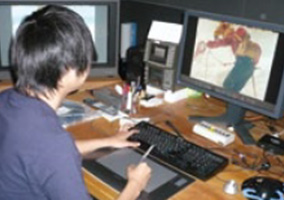
Restoration
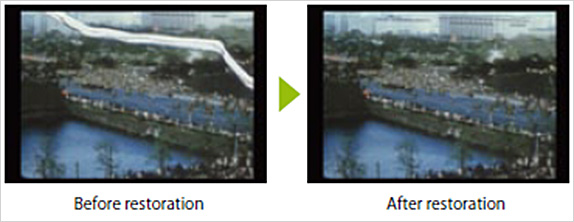
NHK's past programs convey messages that remain relevant today, so the NHK Archives have a production unit that creates shows using archived content. Interviews with famous people who are no longer alive offer insight into unique philosophies and paths to success. And content from popular programs such as “NHK Special” documentaries sheds light on tumultuous chapters in Japan's modern history.
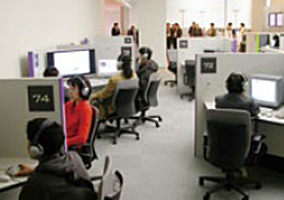
An Open Program Library

Popular programs in Open Program Libraries
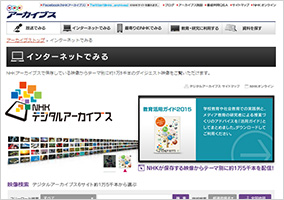
Digital Archives Service portal page
Eco Channel
Visitors can explore content on environmental topics such as eco-friendly businesses and ways to achieve greener, more sustainable lifestyles.
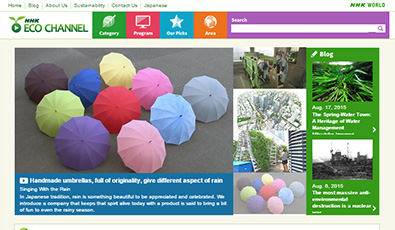
Eco Channel top page (English version)
Great East Japan Earthquake Archives
Content about the March 2011 disaster is focused on interviews with survivors. It's valuable to people working in reconstruction and disaster management. It's also a powerful educational tool for schoolteachers.
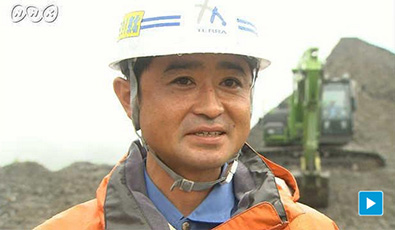
Great East Japan Earthquake Archives
War Testimony Archives
Interviews with more than 500 people who lived through World War Two keep memories alive for posterity. Visitors can also watch newsreel footage that was shown in movie theaters during and immediately after the war.
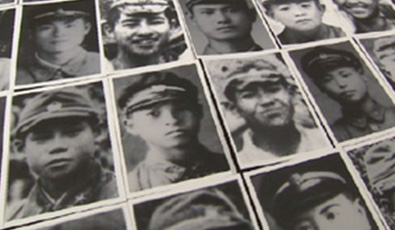
NHK Creative Library
This free online service allows anyone to download a wealth of high-definition videos and audio clips from the NHK Archives for creative purposes. It also offers free online editing software that people can use to create programs.
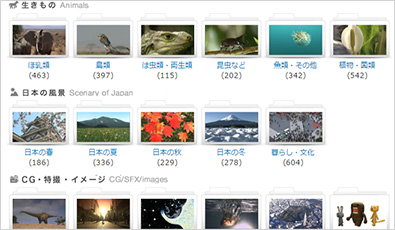
Michishiru (Video Library Covering Spots across Japan)
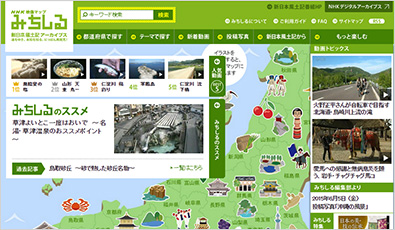
NHK Teachers' Library
The NHK Archives loan DVDs of programs to schools throughout Japan free of charge for use in lessons. The programs fall into seven categories including the environment, peace, lifestyles, and information. We offer 170 programs.
Research Resources for Academics
The NHK Archives support university researchers by giving them access to our stored broadcast resources. We invite and screen applications from scholars. We allow successful applicants to come to our facilities and view content relevant to their research.









